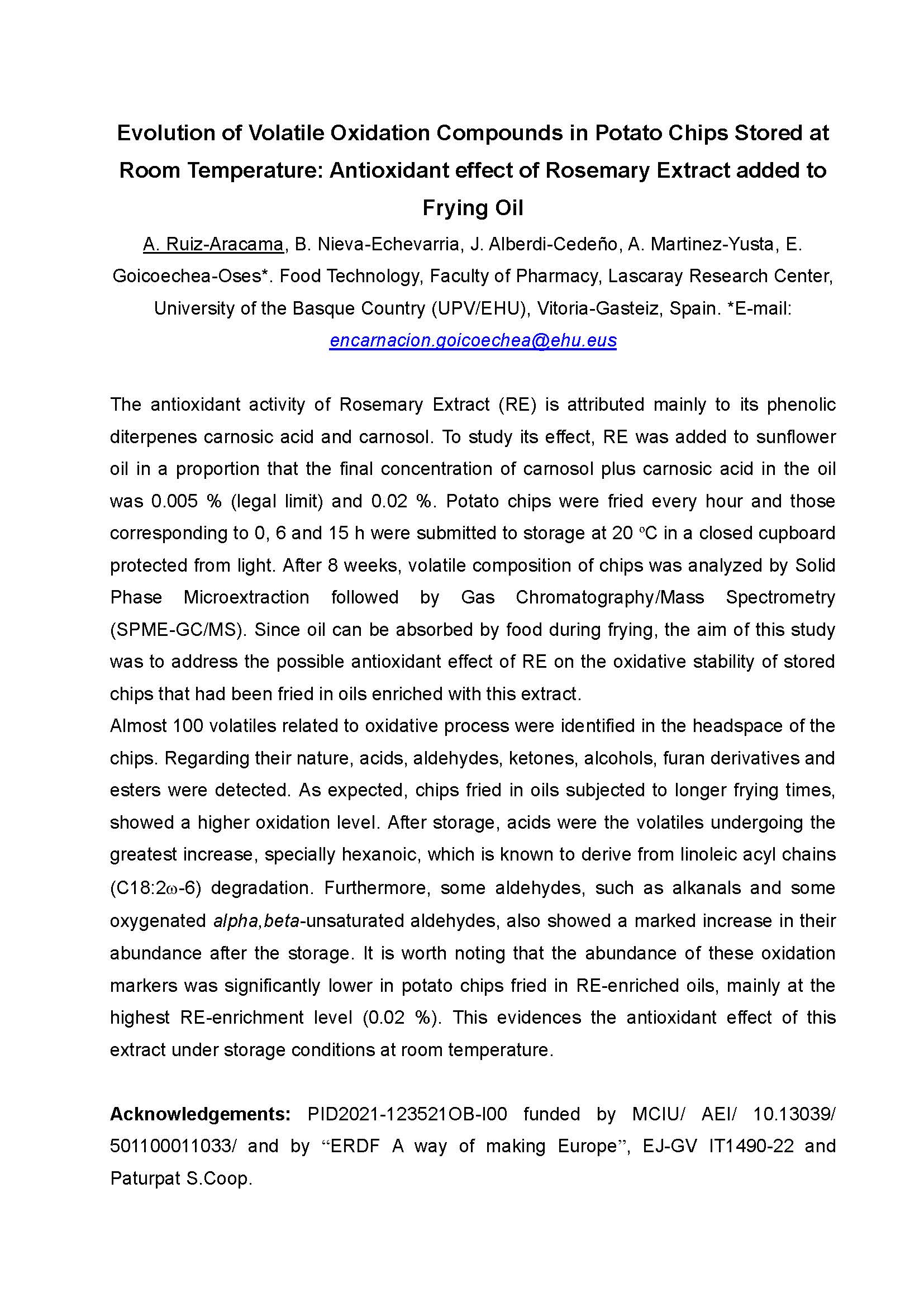The antioxidant activity of Rosemary Extract (RE) is attributed mainly to its phenolic diterpenes carnosic acid and carnosol. To study its effect, RE was added to sunflower oil in a proportion that the final concentration of carnosol plus carnosic acid in the oil was 0.005 % (legal limit) and 0.02 %. Potato chips were fried every hour and those corresponding to 0, 6 and 15 h were submitted to storage at 20 ºC in a closed cupboard protected from light. After 8 weeks, volatile composition of chips was analyzed by Solid Phase Microextraction followed by Gas Chromatography/Mass Spectrometry (SPME-GC/MS). Since oil can be absorbed by food during frying, the aim of this study was to address the possible antioxidant effect of RE on the oxidative stability of stored chips that had been fried in oils enriched with this extract.
Almost 100 volatiles related to oxidative process were identified in the headspace of the chips. Regarding their nature, acids, aldehydes, ketones, alcohols, furan derivatives and esters were detected. As expected, chips fried in oils subjected to longer frying times, showed a higher oxidation level. After storage, acids were the volatiles undergoing the greatest increase, specially hexanoic, which is known to derive from linoleic acyl chains (C18:2-6) degradation. Furthermore, some aldehydes, such as alkanals and some oxygenated alpha,beta-unsaturated aldehydes, also showed a marked increase in their abundance after the storage. It is worth noting that the abundance of these oxidation markers was significantly lower in potato chips fried in RE-enriched oils, mainly at the highest RE-enrichment level (0.02 %). This evidences the antioxidant effect of this extract under storage conditions at room temperature.
Acknowledgements: PID2021-123521OB-I00 funded by MCIU/ AEI/ 10.13039/ 501100011033/ and by “ERDF A way of making Europe”, EJ-GV IT1490-22 and Paturpat S.Coop.
